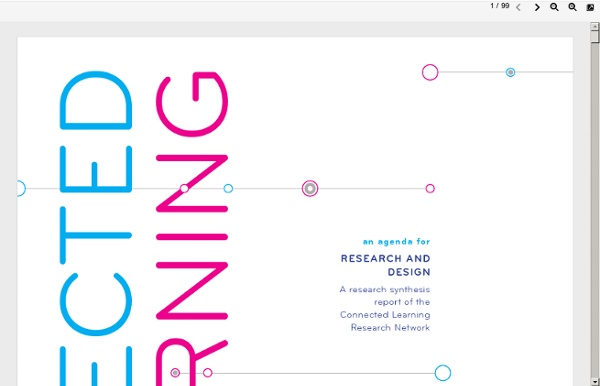



Mikä Järki? - Järki - Järki Mikä on Järki-lehti? Järki on uusi, kokonaan Internetissä julkaistava aikakauslehti. Järki on yleisaikakauslehti, eikä se keskity mihinkään tiettyihin aiheisiin, vaan syleilee koko maailmaa parhaansa mukaan. Kuinka usein Järki-lehti ilmestyy? Järki-lehti ilmestyy alustavasti kerran kuukaudessa. Onko Järki-lehdellä joku agenda tai poliittinen kanta? Järki keskittyy nimensä mukaisesta katsomaan asioita järjen ja tosiasioiden perusteella. Ketkä Järki-lehteä tekevät? Me innostuneet vapaaehtoiset. Ketkä omistavat Järki-lehteen tuotetun materiaalin? Kukin toimittaja ja avustaja omistaa itse kaiken, mitä häneltä Järki-lehdessä julkaistaan. Kuulostaa hienolta, miten pääsen mukaan! Ota vaikka suoraan yhteyttä osoitteeseen paatoimittaja@jarkilehti.fi, niin katsotaan olisiko meillä toisillemme annettavaa! Kuka julkaisee Järki-lehteä? Järki-lehteä julkaisee Kustannusosakeyhtiö Vapaus.
Which study strategies make the grade? Students everywhere, put down those highlighters and pick up some flashcards! Some of the most popular study strategies -- such as highlighting and even rereading -- don't show much promise for improving student learning, according to a new report published in Psychological Science in the Public Interest, a journal of the Association for Psychological Science. In the report, John Dunlosky of Kent State University and a team of distinguished psychological scientists review the scientific evidence for ten learning techniques commonly used by students. "Schools and parents spend a great deal of money on technology and programs to improve student achievement, even though evidence often isn't available to firmly establish that they work," says Dunlosky. "We wanted to take a comprehensive look at promising strategies now, in order to direct teachers, students and parents to the strategies that are effective, yet underused." So why don't they?
Which study strategies make the grade? Students everywhere, put down those highlighters and pick up some flashcards! Some of the most popular study strategies -- such as highlighting and even rereading -- don't show much promise for improving student learning, according to a new report published in Psychological Science in the Public Interest, a journal of the Association for Psychological Science. In the report, John Dunlosky of Kent State University and a team of distinguished psychological scientists review the scientific evidence for ten learning techniques commonly used by students. "Schools and parents spend a great deal of money on technology and programs to improve student achievement, even though evidence often isn't available to firmly establish that they work," says Dunlosky. Based on the available evidence, the researchers provide recommendations about the applicability and usefulness of each technique. In contrast, five of the techniques received a low utility rating from the researchers. So why don't they?
The Future of Workplace Training Paul Matthews, in a blog post titled, “The future of training is not training,” argues that workplace training needs to be about building capability not delivering courses. He writes: Many people in training seldom stop to think why they are doing the training. The logistics and hassles of keeping the training department running are sufficient to fill up their days and obscure the real purpose. Matthews goes on to say that the future of training is in building the capability of employees to do their jobs more effectively. Sean Murray and I present a similar argument in our book, “The 5As Framework,” except we go further to say that training, as well as any learning intervention in an organization, should contribute to achieving the strategic goals of that organization. Companies today can no longer afford to rely on these isolated events to make a difference, whether a one-day skill-building workshop, or a year-long leadership development institute.
Verkkoseminaarissa asiaa vapaaehtoisten osaamisesta | OK-opintokeskus Julkaistu: Perjantaina, 29. Toukokuuta 2015 OK-opintokeskuksen koordinoimassa, kahdeksan EU-maan yhteisessä Volunteering Validation Highway -hankkeessa on opiskeltu sosiaalisen median ja verkon työkalujen käyttöä vapaaehtoistoiminnassa kertyvän osaamisen tunnistamisessa ja tunnustamisessa. Nyt hanke on huipennusvaiheessaan. Päätösseminaarissa 11.6. klo 14 - 16 hankkeen toimijat esittelevät työnsä tuloksia ja avaavat näkökulmia aiheeseen. Tervetuloa oppimiskekkereille! Tapahtuman kotisivu ja verkkolähetys 11.6. klo 14 - 16: www.ok-opintokeskus.fi/en/vvhTwitter-aihetunniste: #vvhproject Lisätiedot: suunnittelija Marion Fields, marion.fields[at]ok-opintokeskus.fi, puh. 040 350 4500koulutussuunnittelija Hanna Alaniska, hanna.alaniska[at]ok-opintokeskus.fi, puh. 050 374 5829lisää tietoa VVH-hankkeesta OK-opintokeskuksen verkkosivuilla Volunteering Validation Highway on oppimiskumppanuushanke, joka on saanut rahoitusta Euroopan komission elinikäisen oppimisen Grundtvig-ohjelmasta.